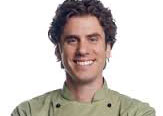Tip: Make a smart start to the new year by creating a personal wellness plan and taking baby steps toward sustainable lifestyle change.
By the Chef Marshall O’Brien Group
Despite our good intentions, many of us over-indulge during the holidays and pay the price with extra pounds, guilt, and body aches and pains. Do not feel discouraged! Sometimes our missteps are our greatest motivators for change. The new year is the perfect time to set off on a more nourishing track. Start on a sustainable path toward a healthy lifestyle with our personalized plan that takes you through the first two weeks and equips you to keep moving toward a future of wellness.
Make Sustainable Change
After the holidays, the media bombards us with quick ways to get back in shape; but these one-size-fits-all crash diets and sudden lifestyle overhauls are bound to fail. A successful plan is one you can sustain.
- Make it Personal – Sustainable change must fit your lifestyle, style of change and specific needs. When you create a plan that is tailored to you, you are more likely to succeed!
- Keep a Journal – A journal provides a snapshot of where you are right now, helps you identify triggers and areas that need change, and documents your progress. Include:
- what you eat and drink throughout the day
- how much alcohol you consume
- how many hours you sleep
- how frequently you exercise
- any symptoms you experience, like body pain or digestive upset
- stressors in your life.
- Find A Partner – Link up with someone who is embarking on their own changes, or identify a family member or friend who will support you in your process. Having a partner on your journey greatly increases your chance of success.
The First Two Weeks
A healthy lifestyle lasts a lifetime, but the first 2 weeks are key for getting into a rhythm you can follow into your future. Review the outline below and download our 2-Week Personal Plan Towards Wellness form to create your personalized beginning steps to nourishing living.
- Identify Your Food Philosophy – Your food philosophy is a guiding set of beliefs about food that steers what you eat. Whether you are a vegetarian, ‘locavore’, or simply committed to eating delicious food that leaves you feeling your best, you are likely already eating with a food philosophy in mind, whether you realize it or not. For your personal plan to succeed, it must align with your food philosophy.
- Clearly State Your Goals – Why are you embarking on this lifestyle change? What do you hope to achieve by living a more nourishing life? Perhaps you wish to be free of joint stiffness and pain, feel more energized throughout the day, or live a longer life to enjoy the things and people you love.
- List Long-Term Steps – Long-term steps are permanent changes that support your goals. These are not steps you will complete in the first two weeks - some may take months or even years - but they are essential to reaching your ultimate goals.
- Break Long-Term Steps into Baby Steps – Lifestyle change fails when you attempt too much at once. Break long-term steps into more manageable baby steps that you approach day-by-day.
- Take Action – Your baby steps are the action plan for your first two weeks toward sustainable lifestyle change. Choose which baby steps you will take this week. Start small by attempting only one or two each day.
Start Small, End Big
With each successful baby step, you will be further motivated to choose new ones for the next day. When one baby step becomes easy, add another. Building on past successes gradually leads you to larger, sustainable lifestyle changes. In time, your baby-steps will lead you to check off your list of long-term steps and help you reach your overarching goals. Start small in these first 2 weeks of the new year for a journey that brings wellness for a lifetime.
You will love the way you feel!
 The Chef Marshall O’Brien Group is a dedicated assembly of professionals based in Minneapolis, Minnesota, committed to the goal of using nutrition to get kids and families to lead happier, healthier lives.
The Chef Marshall O’Brien Group is a dedicated assembly of professionals based in Minneapolis, Minnesota, committed to the goal of using nutrition to get kids and families to lead happier, healthier lives.